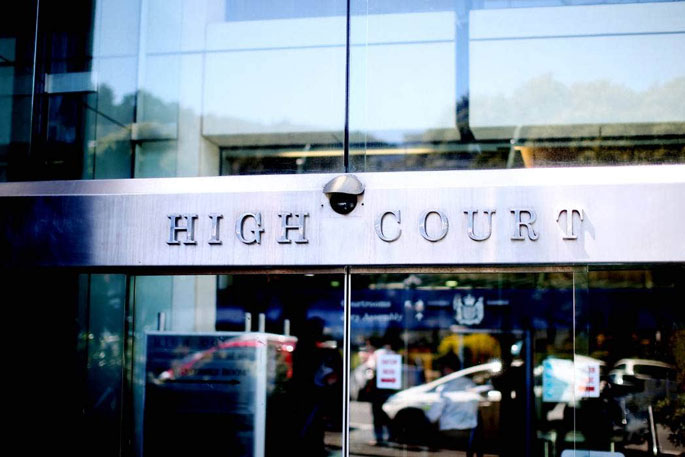A two-week hearing to decide the marine and customary boundaries of three Bay of Plenty iwi and their hapū (sub-tribes) will begin at the Wellington high court today.
After decades of work, Whakatōhea iwi, neighbours Ngāti Awa and Ngāi Tai, received a landmark decision in May 2021 granting marine title and protected customary rights to the coastline stretching from Whakatāne to Ōpōtiki.
It's the second decision to be made under the Takutai Moana Marine and Coastal Area Act 2011, but the first to include multiple iwi and hapū across a large area.
The ruling is expected to set a precedent for the other 200 active applicants across Aotearoa New Zealand.
Counsel representing whānau and hapū of Whakatōhea, Ngāti Awa and Ngāi Tai will present their proposed boundaries over a two-week hearing which will indicate where their rights lie.
Deputy chair of the Whakatōhea Trust Board Māui Hudson says Justice Peter Churchman's judgement to recognise the shared exclusivity that the hapū have within the rohe (region) of Whakatōhea was the right call.
 Associate Professor Māui Hudson is cautiously optimistic about this week's hearing.
Associate Professor Māui Hudson is cautiously optimistic about this week's hearing.
'From a Whakatōhea point of view it recognised our hapū have maintained those interests even though our whenua was taken through raupatu (confiscation).”
The extensive confiscation of Māori land, through raupatu or other means, is a challenge for iwi as the legislation requires applicants to prove consistent occupation of an area, Hudson says.
'That's the implication for Māori at large, even though our whenua was taken it didn't remove our relationship to the marine and coastal area. This judgement demonstrated the use of the legislation to recognise these interests rather than limit them.
'[Māori] are going through hearings in other places now, and it'll be interesting to see if they will have the same outcome.”
However, the hearing phase for Eastern Bay of Plenty iwi has caused tension, Hudson says.
"Whenever a right is assigned to one group over another there will be disappointment and anger.
'When no one has a right, everyone has a right, and we use our tikanga to inform how we act in those places. Now a Pākehā court has decided whose customary rights should be prioritised. While I support the outcome there are overlapping interests that need to be recognised and respected.
"The challenge for iwi as this process gets repeated around the country is using the hearings process to formalise existing relationships between hapū and iwi rather than create competition between them.”
In Churchman's summary of his decision, Marine customary title for the six Whakatōhea hapū stretches from Maraetōtara in the west to Tarakeha in the east and out to sea by 12 nautical miles.
These hapū jointly hold title with Ngāti Awa in the western part of Ōhiwa Harbour, as well as joint title with Ngāi Tai between Tarakeha and Te Rangi which extends out to sea by 12 nautical miles.
Hapū and iwi will have authority to veto resource consent applications that apply to their boundaries, but activities such as swimming, boating and fishing will not be effected.
Under the customary rights decision, whānau, hapū and iwi within the decided boundaries will have free rein to undertake traditional activities whānau have been practising for generations.
These include launching waka, collecting kai moana, gathering natural resources for rongoā (Māori medicine), collecting firewood, shells, planting native flora, exercising kaitiakitanga via conservation efforts, and traversing the land, sea and Hokianga island to pass down matāuranga Māori to future generations.



0 comments
Leave a Comment
You must be logged in to make a comment.